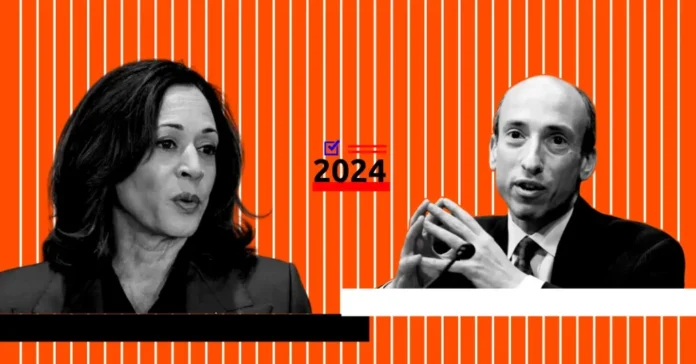The post XRP Lawsuit: Cofounder of Ripple Talks About Confidential Meetings with Harris’ Team appeared first on Coinpedia Fintech News
Ripple co-founder Chris Larsen believes that Vice President Kamala Harris could play a pivotal role in correcting what he sees as significant missteps in President Biden’s cryptocurrency policy. In a recent interview with CNBC, Larsen criticized the current state of U.S. crypto regulation, describing it as a misguided “war on crypto.”
As part of his support for Harris’s campaign, Larsen made a contribution of $10 million worth of XRP, marking him as a significant player from the crypto space in this election cycle. He expressed enthusiasm for Harris’s economic message, which he sees as pro-innovation and supportive of American leadership in global industries.
“We’re really excited by her economic message. It is a message now of pro innovation, and making sure that our American champions dominate their industries around the world,” he said.
He said that the Biden campaign wasn’t paying enough attention. He said that there are many meetings happening with individuals who will be part of her administration, not just focused on crypto.
“There’s been a lot of meetings with folks who will be in her administration, and not just within the crypto industry. Consistently, what they’ve heard is that the last administration was too anti-business and involved a sort of class warfare. That’s not how it will be in a Harris administration,” he explained.
Larsen Criticizes Gary Gensler
Larsen also took the opportunity to criticize SEC Chairman Gary Gensler, calling him “the worst public servant in this country.” This statement explains the growing tension between crypto leaders and regulatory bodies. Gensler’s stringent regulatory approach has drawn criticism for prioritizing enforcement over clear guidelines, creating an environment of uncertainty for crypto businesses.
Ripple, in particular, has faced major regulatory hurdles with the SEC, particularly regarding the classification of XRP as a security. Larsen’s critique extends beyond regulatory clarity; he stressed the missed opportunities for the U.S. to lead in blockchain technology.



